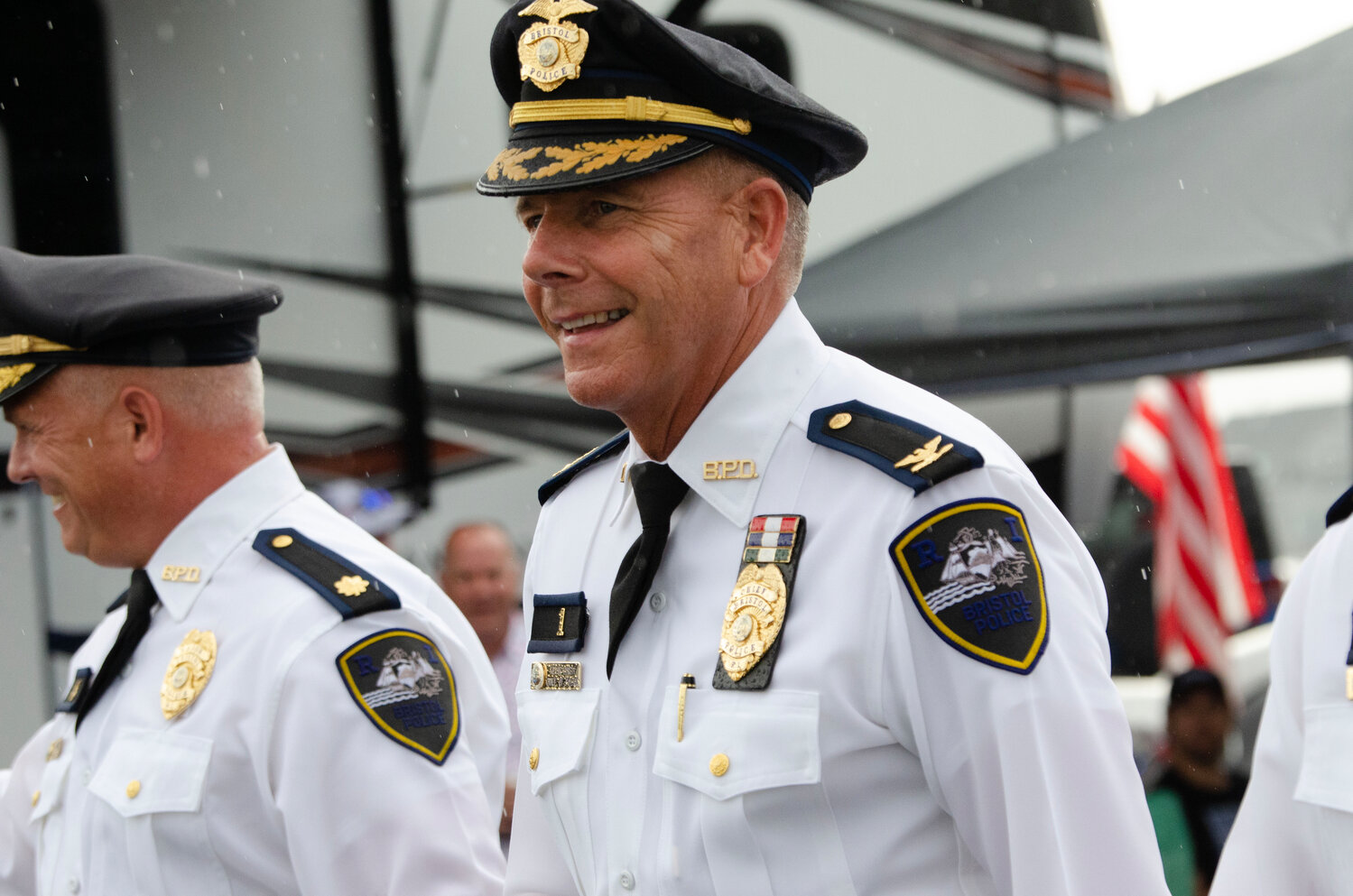Deputy Chief, Captains coming to Bristol Police under restructuring plan
Although the total number of officers in the department isn't changing, proposed changes to its organization promise to save money on overtime and increase retention within the department.
This item is available in full to subscribers.
Please log in to continue |
Register to post eventsIf you'd like to post an event to our calendar, you can create a free account by clicking here. Note that free accounts do not have access to our subscriber-only content. |
Day pass subscribers
Are you a day pass subscriber who needs to log in? Click here to continue.
Deputy Chief, Captains coming to Bristol Police under restructuring plan
If all goes according to plan, The Bristol Police Department will have a Deputy Chief marching in the Fourth of July Parade this year — part of a restructuring effort led by Chief Kevin Lynch that he said could result in savings to taxpayers and improved efficiency and retention within the department.
Presented during the Town’s budget hearings earlier this month, Lynch said he had been looking into ways to optimize the department’s organizational structure since he came into the position in 2019.
“The last 12 months I’ve been feverishly looking into it,” he said.
The crux of the plan involves no new officers or staff being hired, just reorganized. Major Scott McNally, who currently holds the title of Major of Operations, would become the department’s new Deputy Chief. The position formerly held by Major Brian Burke, who retired last year, would become one of three “Captain” positions (one in charge of patrol assignments, one in charge of detectives, and one in charge of the department administration), all of which would be filled by elevating the department’s three existing Lieutenants.
The department would then create four lieutenant positions, three in charge of patrol shifts and one on the administrative side. Each of the three patrol shifts would have two sergeants on duty with a minimum of three patrol officers assigned to each shift.
Lynch said that the new organizational structure would make it so that, in the event a patrol officer or sergeant calls in sick or is unable to come into work, a shift supervisor will be assigned to ride a beat — something he said was not traditionally done in police departments but that would result in savings on overtime. Additionally, under the new rules, only one shift supervisor would be eligible for leave at a time so that no one shift winds up being devoid of a supervisor, which would require an overtime assignment.
Lynch said that while he was happy with his work in reducing overtime costs to this point — according to his budget supplement, Bristol averaged just over $54,000 on supervisor overtime costs over the past three years, compared to similarly-sized Portsmouth, which budgeted $390,000 for its total police overtime accounts in FY23 — the new structure could eliminate them almost entirely.
An additional benefit to the new structure, Lynch said, was that it created more room for promotions within the department since it creates more opportunities at the sergeant position, something that could make staying and working in Bristol more attractive to young officers looking to make the job into a career.
“Every department is having a hard time recruiting,” he said. “We cannot attract the younger generation into a career in public safety, and people are leaving the profession in droves…We have open positions and spent four months recruiting and we don’t have anyone willing to take a position, and that’s troubling.”
Reception to the change has been positive
Lynch said that the restructuring wouldn’t be possible without the support of the police union, the Town Council, and the Town Administrator. The union is on board with the changes, he said, and the reception from the Town Council was positive.
Part of that is likely because the effort won’t cost anything significant up front, and could result in net savings moving forward due to the proposed reduction in overtime. The estimated cost to the change, around $75,000 in total caused by the increases in salary at the new supervisory ranks, would be financed by removing the cost of a new $72,000 police vehicle from the Town’s operating budget and instead funding it through an existing line item in the police department’s budget, which has a surplus. Lynch said that moving forward, they will continue to look at ways to finance a new vehicle each year from within their budget to prevent creating a structural budget hole.
“This was an opportunity for us to address a possible lack of supervision on shifts, it’s a great retention tool, and you encompass all of that with a creative way to fund it, I think it’s a huge win for officers, the police department and the community,” Lynch said, adding that he was hopeful to have a promotion ceremony and an unveiling of the new department to the community on July 1, when the new fiscal year begins and this change would take effect.
“You’ve got to be creative and change with the times,” he said. “This creates the next decade for the Bristol Police Department.”






